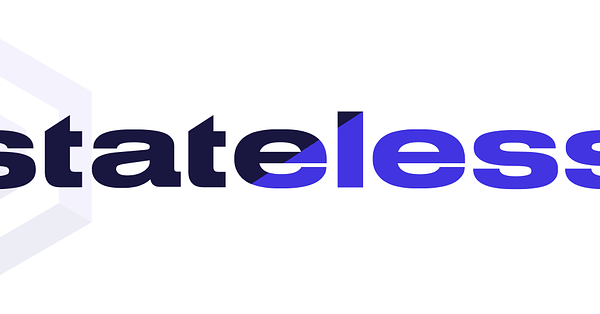Humans at the Edges: Why People are Building DAOs Today
Nick Naraghi on the four key motivations for building Decentralized Autonomous Organizations
For the second long form post on Stateless’ Mirror page, we’re thrilled to co-publish an essay, by Nick Naraghi of Governors DAO, on the motivations for building DAOs today.
Nick starts the piece by making the case that we’re on “the precipice of a new paradigm for online coordination,” which hearkens back to the early days of the internet before large corporations built it “into a kingdom of walled gardens.”
DAOs, Nick argues, are forming as the nodes of this new paradigm, which emphasizes many of the same values that defined the internet’s early days: openness, permissionlessness, collaboration, and mutual benefit for contributors.
The essay then describes four key reasons for why the people inspired by this vision for the future are gravitating towards DAOs as mechanisms for online coordination:
Incentive Alignment - DAOs enable a wide range of stakeholders — including founders, investors, contributors, creators, and users — to share in the long term success of a project.
Regulatory Compliance - When implemented correctly, organizing via DAOs can help projects avoid regulatory frictions around whether their tokens are considered securities.
Antifragility - Centralization is inherently an “attack vector” on a project, be it from bad actors or regulators. DAOs reduce reliance on any one person or team, which can strengthen the project (and the pursuit of its mission) as a whole.
Operational Efficiency - Related to the antifragility point, DAOs also have the potential to be an operationally superior form of organization. DAOs are able scale more efficiently than “TradOrgs” without reliance on a centralized, controlling party and are able to take advantage of what Nick describes as “the combined exponential learning rate across the DAO ecosystem.”
Taken together, these four reasons are a thorough, yet concise, exploration of why so many people (including us at Boardroom) are excited about DAOs.
Though we are still in the early days, the people experimenting with DAOs are adding to a rapidly compounding base of knowledge and experience that helps us better understand what we can do with this technology.
Hopefully, this process will result in not only a better internet — one that avoids centralized control by corporations — but a better society as well.
Check out Nick’s full piece on the Boardroom Mirror page:


Stateless by Boardroom is a community-driven resource covering digital and distributed organizations and their governance. If you’re interested in contributing to Stateless, we’d love for you to reach out to us on the Boardroom Discord.



